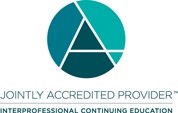Description of Program
Are you a skilled healthcare provider thrust into (or invited to participate in) clinical simulation for your hospital or unit? If so, this program might be what you need to enhance your skills.
Healthcare educational and safety needs at the local, national, and global arena change at a pace challenging for all of us to learn and absorb. Interprofessional staff from the novice to the expert need various modalities to learn from and with each other to impact patient care. A popular solution for needed training, practice, and education is clinical simulation.
Yet, excellent healthcare providers thrust into simulation due to their proficient clinical skills may lack the fundamental preparation and knowledge to assess and educate others. Therefore, the clinical simulation program assists the skilled healthcare provider, with the basic knowledge to support your efforts at meaningful instruction to students, peers, and the interprofessional team. The program provides teaching/learning strategy to assist the teacher and learner alike in developing confidence in their practice.
The Clinical Simulation program incorporates the INACSL Standards of Best Practice to broaden your fundamental understanding of and prepare you for future certification in clinical simulation if desired.
Additionally, the clinical simulation program assists those wanting to develop a simulation center for their institution or improve current operations and quality improvement within their existing center.
Information regarding the national certification exam through the Society for Simulation in Healthcare can be obtained at https://ssih.org/certification
Who Should Enroll in this Program?
The program is designed for English-speaking nurses, pharmacists, physical and respiratory therapists, physicians, educators, health facility administrators, and other healthcare providers interested in the creation of a simulation laboratory or in enhancement of knowledge and current methodologies utilized in clinical simulation.
Program Content
The content is divided into modules. Each module utilizes audio/video recordings, reading assignments, articles, web resources, to augment the learning process. Each module has accompanying study guide(s) with questions (such as multiple choice) for participants to submit to faculty. Interaction with faculty may occur as feedback to study guides, within discussion boards, or via email. The modules cover history and needs of the simulation laboratory, creation and technology issues, scenario development, debriefing, measurement and data collection.
A text is required for this program. Upon registration, you will receive detailed information in order to purchase the textbook.
Program Schedule
This independent study program is available on demand. Completion of the program is required within one year of registration.
Learning Outcome
The learning outcome of this activity is to enable the participant to incorporate best practices in clinical simulation education.
Program Objectives
At the conclusion of this program, the participants will be able to:
Delivery of Content
The content is delivered asynchronous via the online learning management system, Blackboard. Program staff are available during business hours by phone or email to assist participants with technical issues or concerns.
Note: Many businesses, especially government agencies or health institutions, utilize security firewalls. Access to web links within program and communication from the instructor, or other students may be blocked. We recommend not using your work email address for this course.
Contact hours
The University of Southern Indiana Center for Health Professions Lifelong Learning designates this activity for 30 contact hours.
Successful completion of this program does not guarantee expertise in the content. Clinical experience and judgment coupled with an understanding of the content are necessary to attain competency. Achieving certification via a designated professional organization is an additional step to demonstrate competency.
Criteria for Successful Completion
The certificate of completion will be sent via email immediately upon the completion of the program evaluation.
Faculty Name and Credentials
We strive to provide interprofessional education by utilizing a variety of content experts, instructors, contributors, and reviewers.
Carly Andrews, MHA, Clinical Simulations Coordinator
Anita Hagan, DNP, RN, CNS
Conflict of Interest Statement
No individual in a position to control content has any relevant financial relationships.
Accreditation Statements

This activity was planned by and for the healthcare team, and learners will receive 30 Interprofessional Continuing Education (IPCE) credit for learning and change.

In support of improving patient care, University of Southern Indiana Center for Health Professions Lifelong Learning is jointly accredited by the Accreditation Council for Continuing Medical Education (ACCME), the Accreditation Council for Pharmacy Education (ACPE), the American Nurses Credentialing Center (ANCC), the American Psychological Association (APA), and the Association of Social Work Boards (ASWB) Approved Continuing Education (ACE) program to provide continuing education for the healthcare team.
State of Indiana
The University of Southern Indiana is an approved provider of continuing education for several professionals licensed in the state of Indiana, including social workers, marriage and family therapists, psychologists, occupational therapists, occupational therapy assistants, and dental professionals.
State of California
The University of Southern Indiana is approved by the California Board of Registered Nursing. Provider #13378.
To Register: Click on the link above. We recommend utilizing Chrome or Firefox with a computer or tablet to register for our programs.


Questions? Call toll-free 1-877-USI-HLTH (874-4584) or 812-461-5217 or email usi1nhpcert@usi.edu
Enrollment Cost
$500
The fee includes access to the program, along with all resources and handouts. A text, if applicable, is not included in the fee.
If registering by invoicing your employer, program access is granted after payment is received. There is a $25 fee to invoice.
Refund Policy
A $50 administrative fee will be charged prior to accessing the program. No refund will be given after the program has been opened.